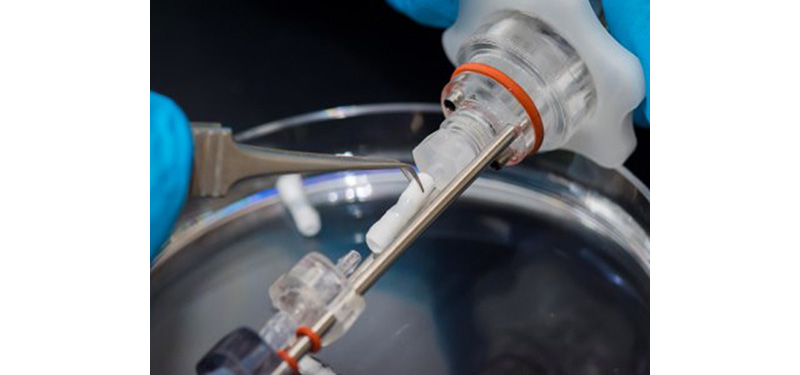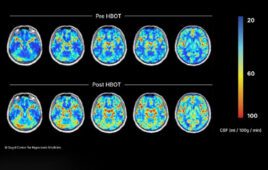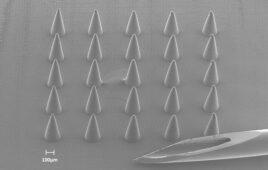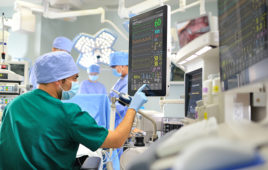A research team at Worcester Polytechnic Institute (WPI) is engineering self-assembling human blood vessels that exhibit the symptoms of common cardiac and vascular conditions, like aneurisms and blockages, work that may provide a better way for scientists to test the effectiveness of new medications and, potentially, speed up the development of more effective treatments for life-threatening diseases.

The first step in engineering blood vessels in Marsha Rolle’s lab, rings of tissue self-assembled from smooth muscle cells are shown growing in custom-made wells. Credit: Worcester Polytechnic Institute
Marsha Rolle, PhD, associate professor of biomedical engineering at WPI, heads a laboratory that specializes in growing functioning blood vessels from human cells.
Her team is using the vascular tissue engineering techniques she previously developed to create vessels that exhibit the characteristics of vascular conditions like aneurisms and blockages. The idea is to create better model systems for testing the ability of potential medications to inhibit or even reverse these prevalent and potentially fatal vascular problems.
“We want to build blood vessels that can replicate what happens when they’re diseased,” Rolle said. “And diseased vessels are a critical problem. If it’s in the coronary artery, then you affect the health of the heart. If it’s in an artery leading to the brain, you could have a stroke. This could be a major breakthrough in how we study and develop vascular medications. It could lead to the development of new drugs that could save lives.”

A tube made from self-assembled rings of smooth muscle cells is shown within a bioreactor where it was cultured with flowing media while the rings fused. Credit: Worcester Polytechnic Institute
For rest of the article click here.




